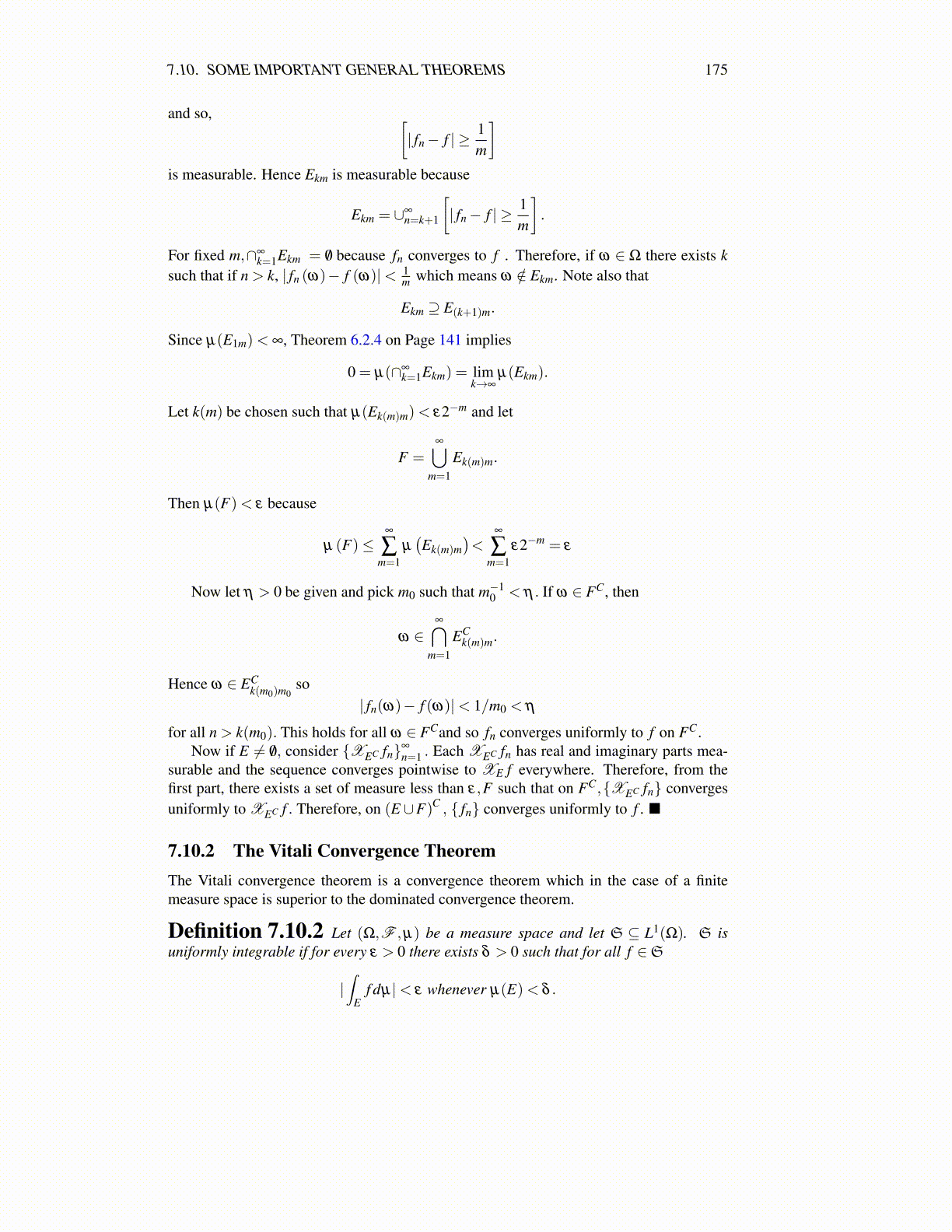
7.10. SOME IMPORTANT GENERAL THEOREMS 175
and so, [| fn− f | ≥ 1
m
]is measurable. Hence Ekm is measurable because
Ekm = ∪∞n=k+1
[| fn− f | ≥ 1
m
].
For fixed m,∩∞k=1Ekm = /0 because fn converges to f . Therefore, if ω ∈ Ω there exists k
such that if n > k, | fn (ω)− f (ω)|< 1m which means ω /∈ Ekm. Note also that
Ekm ⊇ E(k+1)m.
Since µ(E1m)< ∞, Theorem 6.2.4 on Page 141 implies
0 = µ(∩∞k=1Ekm) = lim
k→∞µ(Ekm).
Let k(m) be chosen such that µ(Ek(m)m)< ε2−m and let
F =∞⋃
m=1
Ek(m)m.
Then µ(F)< ε because
µ (F)≤∞
∑m=1
µ(Ek(m)m
)<
∞
∑m=1
ε2−m = ε
Now let η > 0 be given and pick m0 such that m−10 < η . If ω ∈ FC, then
ω ∈∞⋂
m=1
ECk(m)m.
Hence ω ∈ ECk(m0)m0
so| fn(ω)− f (ω)|< 1/m0 < η
for all n > k(m0). This holds for all ω ∈ FCand so fn converges uniformly to f on FC.Now if E ̸= /0, consider {XEC fn}∞
n=1 . Each XEC fn has real and imaginary parts mea-surable and the sequence converges pointwise to XE f everywhere. Therefore, from thefirst part, there exists a set of measure less than ε,F such that on FC,{XEC fn} convergesuniformly to XEC f . Therefore, on (E ∪F)C , { fn} converges uniformly to f . ■
7.10.2 The Vitali Convergence TheoremThe Vitali convergence theorem is a convergence theorem which in the case of a finitemeasure space is superior to the dominated convergence theorem.
Definition 7.10.2 Let (Ω,F ,µ) be a measure space and let S ⊆ L1(Ω). S isuniformly integrable if for every ε > 0 there exists δ > 0 such that for all f ∈S
|∫
Ef dµ|< ε whenever µ(E)< δ .